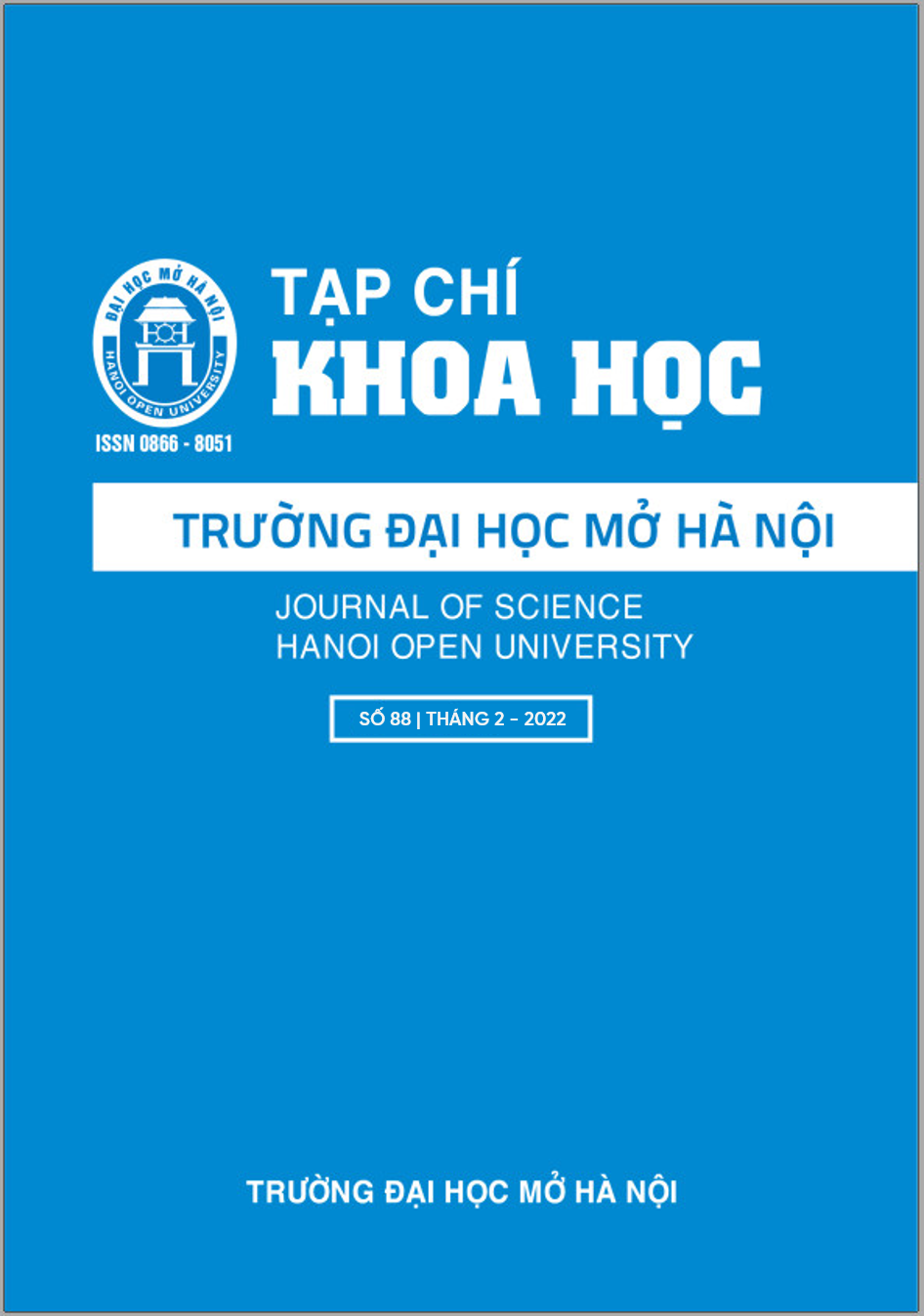THE ROLE OF THE BLENDED LEARNING MODEL IN UNIVERSITY EDUCATION IN VIETNAM TODAY
Từ khóa:
Blended Learning, e-learning, quality, university educationTóm tắt
Abstract: Digital transformation in society in general and in higher education, in particular, is inevitable in the current era of information technology development as well as in response to the global Covid-19 pandemic. The trend of using information technology to transform the organizational model of operation in traditional higher education brings practical effects for managers as well as higher education institutions. The combination of face-to-face instruction in the classroom and the application of the digital environment creates a learning experience tailored to each individual for better effectiveness. Blended Learning refers to the integration of traditional face-to-face instruction and online learning giving participants the best of both worlds.
The purpose of the study is to point out the role and importance of the Blended Learning model in higher education institutions to improve the quality of education and training, creating high-quality human resources for society.
Tài liệu tham khảo
[1]. Ahmed I, Qadri S.A. et al.(2011). Information Technology: Its impact on Global Management. World Applied Sciences Journal 12(7), 1100-1106.
[2]. Annan, D.L.(2008). Education Teaching Methods and Curriculum Computers- Computers Assisted Instruction. Distance Learning, 5(1), 13-17.
[3]. Chen, W. and Yao, A. (2016). An Empirical Evaluation of Critical Factors Influencing Learner Satisfaction in Blended Learning: A Pilot Study. Universal Journal College of Educational Research 4(7), 1667-1671.
[4]. Colis, B., and Moonen, J. (2001). Flexible learning in a digital world: Experiences and expectations. London: Kogan-Page.
[5]. Graham, C. R., Woodfield, W., & Harrison, J. B, (2013), A framework for institutional adoption and implementation of blended learning in higher education, Internet and Higher Education, 18(3), p.4-14, Doi: 10.1016/j.iheduc.2012.09.003.
[6]. Garrison, D. R., & Vaughan, N, (2008), Blended learning in higher education, San Francisco, CA: Jossey-Bass
[7]. Harrison, M. (2013). Blended Learning – Current Use, Challenges and Best Practices. Report 2013. Brighton: kineo. The Oxford Group.
[8]. King, S. and Arnold, K. (2012). Blended Learning Environments in Higher Education: A Case Study of How Professors Make it Happen. Mid-Western Educational Researcher, 25(1/2), 44-57.
[9]. Koper, R. and Tattersall, C. (2004). New Directions for Lifelong Learning Using Network Technologies. British Journal of Education Technology, 35(6), 689-700.
[10]. Leidner, E. D. and Jarvenpaa, L.S. (1995). The Use of Information Technology to Enhance Management School Education: A theoretical View. MIS Quartely, 265-290. 11. 12. Megeid, N. (2014). E-learning Versus Blended Learning in Accounting Courses. The Quartely Review of Distance Education, 15(2), 33-55.
[11]. O’Lawrence, H. (2007). An Overview of the Influences of Distance Learning on Adult Learners. Journal of Education and Human Development, (1) 1, 126-135.
[12]. Rovai, P. and Jordan, H. (2004). Blended learning and sense of community: A comparative analysis with traditional and fully online graduate courses. International Review of Research in Open and Distance Learning, 5(2), 2-13.
[13]. Sife, A.S. et al. (2007). New Technologies for Teaching and Learning: Challenges for Higher Learning Institutions in Developing countries. International Journal of Education and Development Using Information and Communication Technology (IJEDICT), 3(2), 57-67.
[14]. Tseng, H. and Walsh E. (2016). Blended Versus Traditional Course Delivery Comparing Students’ Motivation, Learning Outcomes, and Preferences. The Quarterly Review of Distance Education, 17(1), 43-52.
[15]. Weil, S. and De Silva, T. (2014).Blended Learning in accounting: a New Zealand Case. Meditari Accountancy Research, 22(2), 224-
Welker, J. and Berardino, L. (2005-2006). Blended Learning: Understanding the Middle Ground between Traditional Classroom and Fully Online Instruction. Journal of Education Technology Systems, 34 (1), 33-55.
[16]. Nguyễn Hoàng Trang, “Một số vấn đề trong tổ chức dạy học blended learning và kinh nghiệm quốc tế”. Kỷ yếu hội thảo quốc tế giáo dục cho mọi người, Đại học quốc gia Hà Nội (2020).
